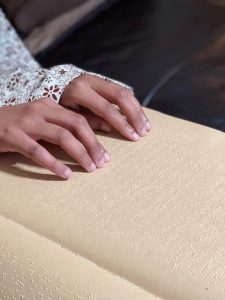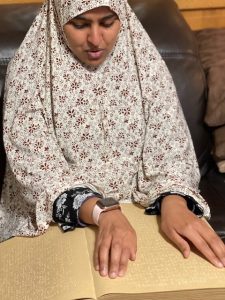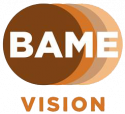I’d like to begin by wishing everyone Ramadan Mubarak. May it be a blessed month for all! May we remember those less fortunate here in the UK, as well as around the world and keep them in our prayers. Ameen
What is Ramadan
Ramadan is the 9th month in the Islamic calendar and is considered the holiest month of the year. Ramadan is one of the five pillars of Islam and marks the month in which The Qur’an was revealed to Prophet Muhammad (Peace be upon him). The start of the month is determined by the sighting of the new moon and ends with the new moon sighting of the next Islamic month.
The month consists of Muslims all over the world engaging in abstinence of food and drink between dawn and sunset. This allows Muslims to practice self-control and compassion for the poor and less fortunate.
All Muslims are required to fast, besides the elderly and young children under the age of puberty, and also those who are ill or medically exempt, as well as those who are travelling and pregnant.
For Muslims, Ramadan is a month of not only abstaining from food and drink, but also a month of prayer, and reflection in abundance and a time Muslims draw closer to Allah through this. It’s a time for spiritual devotion in prayers, reading The Qur’an, and charitable giving. It’s also a time when bad habits are given up and extra good deeds are performed.
The end of Ramadan meets the day of Eid ul-Fitr. This is a day of celebration for all Muslims consisting of Eid prayers and feasting delicious food. Muslims wear their finest clothes on Eid, spend time with family and friends, and exchange gifts too. It is also a day of thanks and gratitude to Allah for the strength they have been given throughout the month.
What a day in Ramadan looks like
There aren’t many times of the year you’ll find me rolling out of bed around 3.30 am and telling Alexa to stop the alarm, but this is how my days in Ramadan begin. All the adults in my family wake up for the pre-dawn meal known as Suhoor. For me, this meal generally consists of porridge with fruit, sometimes I’ll mix it up and have scrambled eggs, followed by a lovely cup of tea. Got to squeeze the caffeine in! We stop eating at dawn, currently in London, UK (11 April 22), this is around 4:30 am. Once I have completed my prayers known as Fajr I’ll go to sleep for a few hours.
Muslims continue with regular day-to-day activities such as going to work, school, exercise/hobbies, etc. However, Ramadan isn’t just about not eating. It is about devoting more time to prayers and increasing spiritual connection to Allah (God). I learned to read the Qur’an in Arabic braille, which allows me to pray independently. My Arabic braille reading is nowhere as fluent as English, but I appreciate having the choice to read the Qur’an in Arabic, the same as the rest of my family.
My family and I gather at sunset known as Iftar for the opening of our fast. Currently, in London, UK (11 April 22) this is around 7:54 pm. We open our fasts with dates, water and fruit. In our house, during Ramadan, we have a tradition of cooking the dates in a little butter with nuts. Once we have opened our fast everyone will go to pray the sunset prayer known as Maghrib. This is followed by our main meal which will be things like rice, chicken, and lentils. It is tradition to have pakoras and samosas during Ramadan as part of the meal on some days.
Once the main meal is finished we’ll clean up and then sit with tea/coffee and biscuits, or some sort of sweet treat. We have a weakness for biscuits in my house.
Everyone will then get ready for the night prayer known as Isha. During Ramadan, there is an additional prayer that many Muslims will pray known as Taraweeh.
Using eye drops during Ramadan
I have glaucoma and dry eyes, which requires me to use eye drops during the day. However, fasting doesn’t require any changes as I am able to continue with my eye drops without it breaking my fast. My eye drops help keep my eye pressure down and my eyes lubricated. It is important for anyone on eye drops to continue taking them during Ramadan, as not taking them could be detrimental to their sight. For example, with Glaucoma there often aren’t any physical symptoms, such as pain, headaches, etc, to know the pressure has increased and it could be too late before you start to notice changes in your vision.
What Ramadan is to me
Ramadan is a wonderful and blessed time of the year for me. It is something I and many Muslims look forward to. It is a time for reflection and betterment. It brings people together in a way that doesn’t happen throughout the year. I find that we don’t always eat together as a family throughout the year, but Ramadan is the one time that we are guaranteed to have Suhoor and Iftar together. It brings us closer as a family and strengthens our relationship. Ramadan isn’t a hardship, but a much loved time of the year for me.
Written by Masuma Ali


